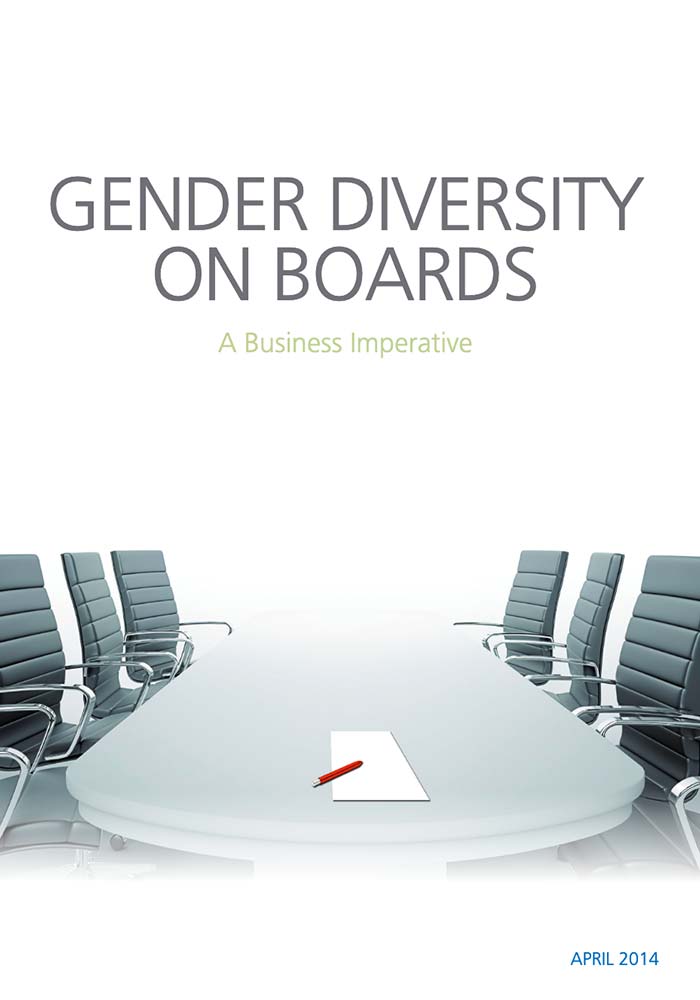GENDER DIVERSITY ON BOARDS: A BUSINESS IMPERATIVE
25 April 2014 – The Diversity Task Force regarding Women on Boards (DTF)1 launched its report, “Gender Diversity on Boards: A Business Imperative” today. This report explores gender diversity on boards and in senior management of companies listed on the Singapore Exchange, and provides recommendations on the way forward.
Gender diversity in senior management is also included in this report because they form the pipeline of women on boards.
Globally, the call for more gender diversity on corporate boards has been gaining momentum. Gender diversity is increasingly recognised as essential to robust decision-making, more informed risk management and stronger corporate governance, which ultimately lead to better business performance and sustainability. There is increasing spotlight on the issue in media around the world, including the local media. Singapore Government leaders have also been encouraging boards to embrace gender diversity.
Getting women on boards is not a numbers game or about women’s rights. Rather, it is about what companies, and by extension society, are losing out by not tapping on the potential of women. It is about ensuring that decisions made in the boardrooms reflect the realities of the society and the market, including the rising incomes, purchasing power and decision-making power of women at home and at work. It is also about harnessing the individual and combined talents of people to make more holistic and balanced decisions. Solving complex business challenges requires the widest spectrum of views, personalities, strengths and opinions in boardrooms and in senior decision-making positions.
Shareholders, institutional investors, as well as corporate governance rating agencies around the world believe that in an increasingly complex global marketplace, companies that effectively hire, retain and promote women are often better equipped to capitalise on competitive opportunities than those that do not.
Singapore is at the start of this journey. Clearly much more can be done to raise awareness and change mindsets, attitudes and behaviours. We hope that the Government, regulators, industry, academia and companies will use the findings from this report as a platform to initiate dialogues; review existing policies, practices and programmes; as well as institute changes, so that we can have more gender- diverse boards in Singapore for our long-term competitiveness.
DOWNLOADS
